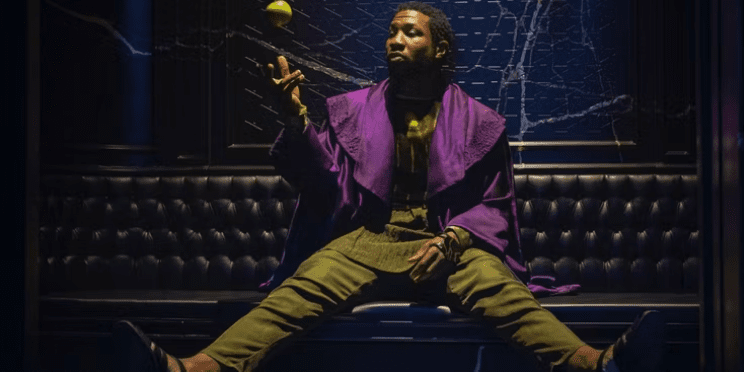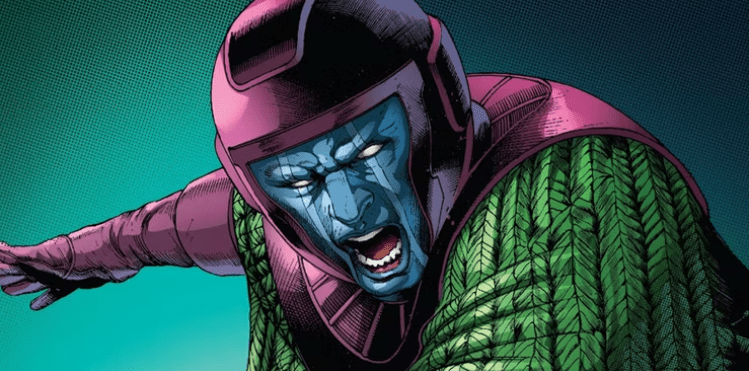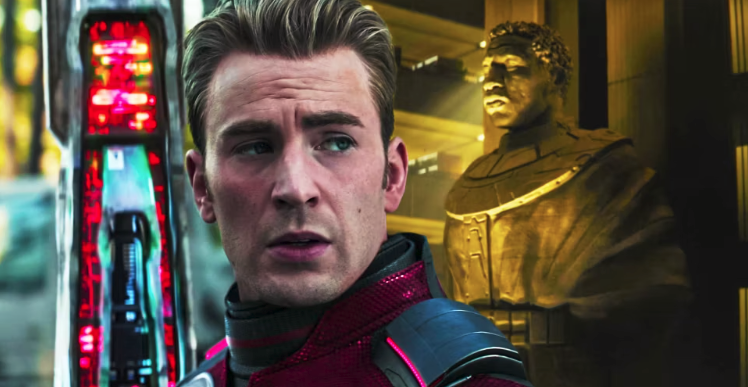How will the invasion of Kang the Conqueror start? Here’s why his time-travelling mischief can lead to Captain America’s happy ending.
The time travel antics of Kang the Conqueror in Ant-Man and the Wasp: Quantumania might be a satisfying conclusion to Captain America’s saga in Avengers: Endgame. Time travel was essential for Earth’s Mightiest Heroes to get the Infinity Stones and defeat Thanos in the film. But for one specific hero, going back in time allowed him to have the happy ending that had been denied to him more than 70 years before.
Steve Rogers could only achieve his goals through time travel. In the Captain America sequels and Avengers films, Steve made some attempts to move on after emerging from the ice and understanding that he had lost out on a life with Peggy Carter. But as Endgame shown, Steve was unable to accomplish this. Because of this, Captain America used the new time-travel technology developed by the Avengers to travel back to 1945 to dance with Peggy Carter, something that was impossible in Captain America: The First Avenger. As a consequence, Phase 3 was able to provide the Sentinel of Liberty’s MCU tale with what seemed like the ideal conclusion.
Even if the conflict with Thanos is over, Marvel isn’t done using time travel as a story element. The Marvel Cinematic Universe (MCU) will make the idea the subject of Ant-Man and the Wasp: Quantumania after delving into it a little more in Loki on Disney+. In Scott, Hope, and Hank’s upcoming big-screen adventure, the trio will face up against Kang the Conqueror, a well-known Avengers antagonist whose MCU appearance was prompted by Loki’s conclusion. It’s unclear exactly what he has planned, but it appears Ant-Man and his comrades will be responsible for foiling Kang’s scheme. Here’s why Kang’s MCU invasion may be the MCU’s response to the Captain America plot in Endgame.
In Endgame, The Avengers Violated The Laws Of Time.

The MCU set certain basic principles for time travel with Loki and Avengers: Endgame. The most crucial criterion is that the past cannot be changed, as it usually is in most tales that explore the idea. It can cause all kinds of unforeseen repercussions if disturbed. The Ancient One advised the Avengers to return the Infinity Stones to their original locations after defeating Thanos in order to prevent new branching histories. However, they were still breaking the law, and with good reason. The fact that Loki managed to escape from SHIELD custody in 2012 is evidence of how dangerous time travel is.
The Time Variance Authority explained the Avengers’ intention to go through time in Loki as something that was anticipated, although this conversation did not include what Steve Rogers accomplished. There’s no doubting that what Steve Rogers did was a flagrant breach of the MCU’s time travel laws, whether or whether the Avengers’ choice to get the Infinity Stones was a necessary action. Since going back to 1945 altered Peggy Carter’s fate and maybe the destinies of countless other individuals he would have dealt with in the past, it most certainly resulted in the creation of a new branching chronology.
The topic of accountability has been a recurring one in the MCU. When Hawkeye’s brutal past as a Ronin came back to haunt him, it played a part. It was significant in Spider-Man: No Way Home, as Peter Parker experienced his own Uncle Ben moment when he decided to kill Aunt May. In fact, this topic seems to be a recurring one in Phase 4 films and television series. It’s noteworthy to note, though, that in Endgame, none of the Avengers were blamed for altering the history. However, given that Ant-Man is the protagonist who initiated their entire scheme, there may be an opportunity for that to be resolved in Ant-Man and the Wasp: Quantumania.
The MCU’s Preoccupation With Accountability Continues with Kang’s Appearance

The triumphant conclusion of Captain America in Avengers: Endgame was viewed as a just recompense for everything he had endured in the MCU, particularly his participation in the showdown with Thanos. But as was said earlier, this conclusion was not intended to take place. Steve’s adventure concluded with him altering history for his own personal gain rather than dying as Iron Man did. It was simple to ignore the issue with what Steve had done due to the beauty of it all and the conviction that he had earned this outcome, but it must be remembered that there are stringent time travel regulations in place for a reason. The fact that it was upbeat and that Steve Rogers deserved happiness shouldn’t make him an exception.
Ant-Man and the Wasp: Quantumania may be Marvel’s means of making up to Captain America and the majority of the Avengers on his squad for their actions, even if they may never actually suffer the effects of what they did. This may be the central theme of Kang’s narrative, as suggested by the title of the film itself. The use of the phrase “Quantumania” virtually guarantees that the Avengers in Endgame used a similar technique to Kang’s for time travel. That seems that Endgame may have set up Kang’s arrival. Given that Kang is from the future, it is conceivable that he may discover the Avengers’ technology decades from now. If that occurs, Ant-Man could be made to pay for everything the rules he and his comrades breached during Endgame.
Kang will steal Captain America’s “happy ending” to create his own

Kang’s quest in MCU Phase 4 may be an attempt by the character to find his own “happy ending.” Marvel Comics presents two suggestions as to what that may be in terms of potential content. Kang had a long-standing love affair with Princess Ravonna, a person from the future. Marvel could choose to take inspiration from Kang’s other objective instead as they already loosely translate Ravonna in Loki. Kang was a villain who craved power and was motivated by ambition in the original material. Kang believes he has a right to rule over contemporary society due to his intelligence and cutting-edge technologies. He believes that he is entitled to live this life. Although Kang’s vision of a happy ending differs significantly from Captain America’s, both share the same fundamental principles. In Ant-Man and the Wasp: Quantumania, Kang the Conqueror from the MCU, who was inspired by Steve, may exploit the Quantum Realm to achieve the future he’s always desired but never been able to have.

